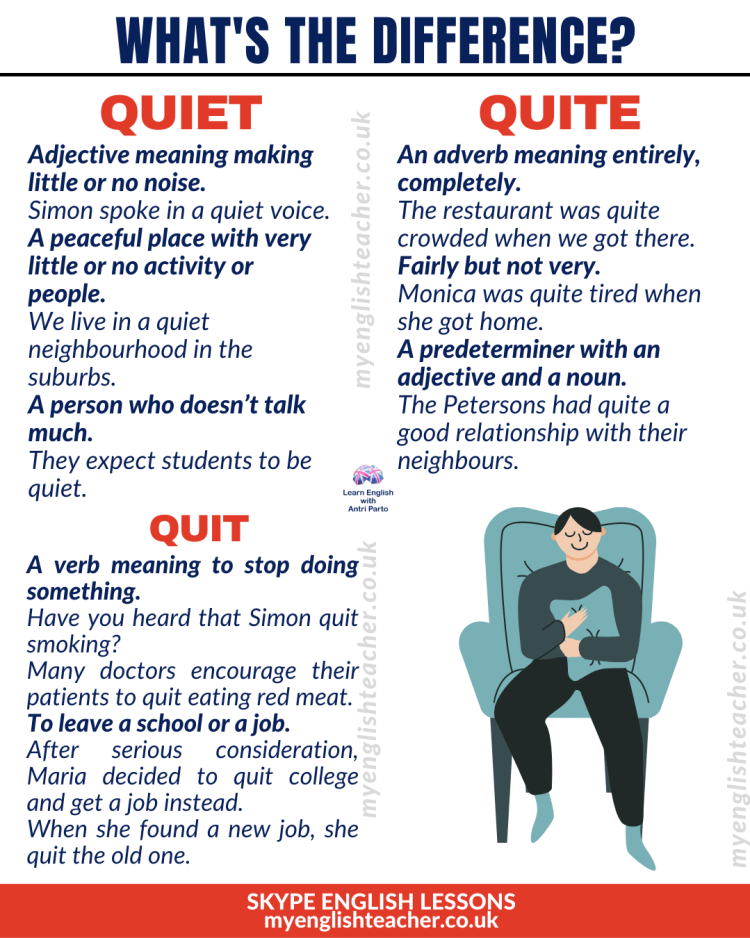Quiet vs Quite vs Quit
Hi English learners. Welcome to a new lesson. We will talk about the difference between quiet, quite and quit.
How many times have you thought about the difference between the words quiet and quite and were not sure how to spell or read them? Well, not any longer, because in today’s lesson, we’re going to explain the difference between these two words and the verb quit.
The English teachers at My Lingua Academy are happy to help you improve your English. You can attend our individual and group private lessons learn English for free with our blog posts where you will find loads of grammar and vocabulary lessons, as well as exercises and quizzes.
Quiet
Quiet is an adjective meaning making little or no noise.
- Simon spoke in a quiet voice.
- I can hear a quiet knocking on the window.
- Be quiet, the baby is sleeping.
Quiet vs Quite vs Quit
Also: being discreet.
- Will you please keep quiet about our plans to get married?
We can use quiet to describe a peaceful place with very little or no activity or people.
- We live in a quiet neighbourhood in the suburbs.
- Beth and Martin decided to have a quiet wedding.
We also use quiet for a person who doesn’t talk much.
- Unlike her sister, Laura was a shy and quiet child.
- They expect students to be quiet.
Quite
Quite is an adverb we use before an adjective or another adverb. It means entirely, completely.
- The restaurant was quite crowded when we got there.
- Miranda was quite sure she would pass the test.
It also means fairly but not very.
- Mark was quite hungry so he ordered some takeaway food.
- Monica was quite tired when she got home.
We can use quite as a predeterminer with an adjective and a noun.
- The Petersons had quite a good relationship with their neighbours.
- It took me quite a long time to realize that.
- I’ve got quite a good idea.
Quiet vs Quite vs Quit
We can use quite in some fixed expressions.
- Mary was quite right when she told us that we couldn’t buy tickets a day before the concert.
- I quite liked the film you recommended.
- Quite frankly, I am not surprised that you failed your exam, considering how little you’d been studying.
- Flying is quite the best way to travel overseas.
Quit
Quit is a verb meaning to stop doing something.
- Have you heard that Simon quit smoking?
- Many doctors encourage their patients to quit eating red meat.
The verb quit also means to leave a school or a job.
- After serious consideration, Maria decided to quit college and get a job instead.
- When she found a new job, she quit the old one.
- Luke is quitting as a footballer next month.
If you really want to learn English, book an online English lesson with one of our certified and experienced English teachers We are going to make sure that you have a good run for the money you are investing in your linguistic education. Waste no time and take a trial test for only 1 euro.




0 Comments